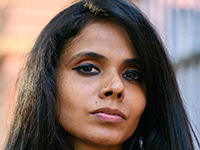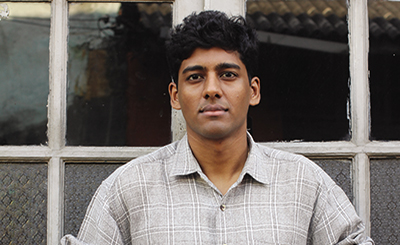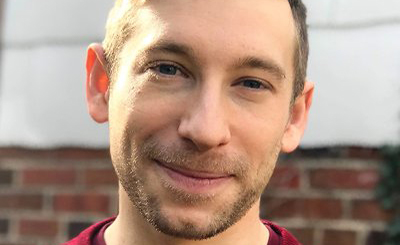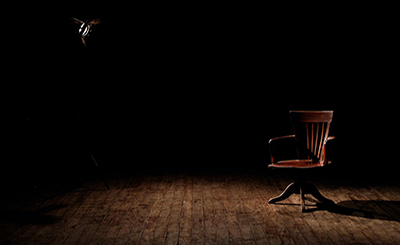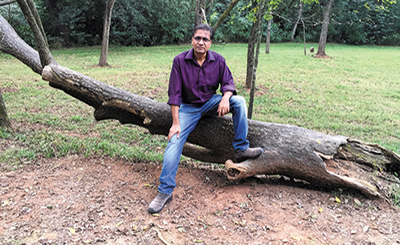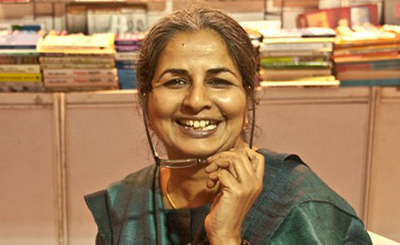
‘Kamala Surayya’s validation helped me immensely’
My journey as a poet was fairly run of the mill. I was shy and writing secretly — partly to process what I couldn’t write in my day-job as the editor of a small alternative magazine that folded up in six months, and, later as translator. Those who read my work were full of praise, and the one person who I will always single out for giving me confidence in my own work was S. Anand, who now runs Navayana. I still remember how when he first read my work (he was Outlook’s Chennai Correspondent at that time), he would call me after reading every poem. I felt so undeserving.
I had some friends in Cochin, they were running an intellectuals group for communal harmony — and when they knew I wrote poems, they brought it to the attention of Kamala Surayya (Das). Kamala was losing her eyesight, but thankfully her biographer Merrily Weisbord was staying in town at that time, and she read aloud my poems. Kamala Surayya wrote (by hand) the loveliest foreword that was ever possible. Her validation helped me immensely because people would sit up and look at what I had to say. The same friends in Cochin also put me in touch with my first publisher (he died tragically young, and my first collection, Touch, remains out of print).
In the meanwhile, S. Anand had left his job at Chennai and started Navayana, and relocated to Delhi. There was no second thought in my mind — he was going to publish me, and he did. Ms Militancy was a massive success by poetry standards, going into reprint in less than six months. After the publication of my second collection Ms Militancy in 2010, I turned to writing fiction, and poetry slowly started to evaporate from my life. The reasons were many — there was a lot of public hostility because the contents of the book were considered offensive by the right-wing, and some male critics were quick to dismiss this in published reviews by calling the poems, “c**t based designer feminism”. For me, that hatchet job showed so much layered misogyny. It was traumatic to be humiliated so publicly, it felt incredibly personal. Because the readership of poetry and its audience is so limited, you do not even get the space/audience to defend yourself against these charges, these mindless attacks. Looking back at it, I understand that this was not personal, they would have done this to any young woman who was aspiring to be an intellectual and at the same time, writing not just about sexuality but also offering political commentary. This is toxic gatekeeping.
The other thing that hurt me was the sudden rise of clones. I would be asked to blurb poetry books, and there would be lines of verse lifted verbatim from my poems. So, before I would blurb, I would politely ask for these lines to be removed. I do not wish to out the identity of the poet involved in a couple of such instances, but it felt like a deep violation of my sense of self. Who are you when someone can pass off your work as their own? When this was happening, there was another eerie coincidence. At least two people wrote to me saying they had met me at a book festival in Kolkata. I had never been there, so someone was passing off as me. One was the theft of ideas and actual lines (plagiarism), the other was actual identity theft. It felt very disorienting, alienating. There is something about a poet’s persona that attracts copycats I think.
I was still in my 20s at that time, and I did the only thing I could do for self-preservation — I stopped writing poetry altogether. I felt: my words cannot be stolen, if I cease writing poems.
I returned to poetry after many years — partly as a response to what was happening politically around us, and personally, to capture the inner-world and feelings of being a mother of young children. Here, I share three intimate poems that explore the latter.
Your Absence is a Presence
I wake up with aches I cannot name
to the sound of my younger son,
sat by my side, singing
ammaingevaavaa…
(the elder, quiet, plays with toy trucks.)
The day moves, slow as a centipede,
sure as a checklist: feed, teach, feed,
play, wash, feed, play, feed, sleep —
a monotony only broken by accidents,
illnesses, or, a postman at the door.
Watching my children is like tending a fire:
There is all the warmth in the world, but,
I cannot blink, I cannot turn away.
I’ve grown a hundred hands,
I’ve flaming feet.
Eyes open to guard this fire,
your memories come to me
as rain clouds and slanting light.
You are dream and daydream,
you shatter my solitude.
Moist, with stolen kisses
and our suppressed tears,
you wash away my loneliness.
Saptengala?
of course, it means: have you eaten?
addressed to you, it also means:
here, i am thinking of you
it is a rainy day,
are you on the road, have you come by food?
your hungers are my own
your eating
is your health, your health is your longer life,
your life is my happiness
i am hungry for you
i have not forgotten
how you always share your food
when i met you, for work, at mealtimes,
you handed me your homecooked food
on the lid of a tiffin-carrier sent by your sister
once, i fell in love with a photograph
of you chopping vegetables shirtless
wearing a lungi and i carried it around
in a diary for years,
and now,
i think of that often,
whenever i cook
watching you eat adds years to my life
you eat so little,
you eat so late
you forget to eat, even
dear, do not skip a meal
the last time we ate together,
we pretended to be strangers at a table
now i have fed my children,
and my work as a mother is done, and,
in every mouthful
i have given them,
i have thought of you
here i come, mothering you
this is less painful than saying
i love you
this is a heartbreak in a question,
in the knowledge that i can never
lay a table for you everyday
this is a question
that embeds a forever dream
andhavaramvendume
in the hope that one day,
in another time
i can come to you
with food i have made
break your silence, my dearest heart
look at me, my love
eat my love
How Careful Was I When I Took My Way
Life can only be understood backwards; but it must be lived forwards. — Soren Kierkegaard
In a lovers quarrel, questions
come without correct answers.
Which of us broke off what we shared?
In my version of our story, you turned away.
In your version, I was the one who left.
The blank page
holds the definite answer,
and a promise:
I return to you —
And, poetry returns to me.
The essay and the poems are part of our Poetry Special Issue (January 2022), curated by Shireen Quadri. © The Punch Magazine. No part of this essay or the poems exclusively featured here should be reproduced anywhere without the prior permission of The Punch Magazine.
More from The Byword
Comments
*Comments will be moderated



